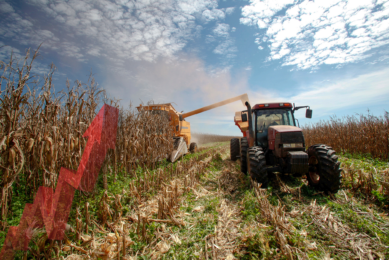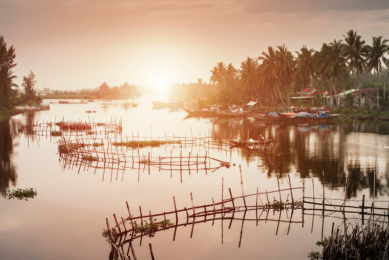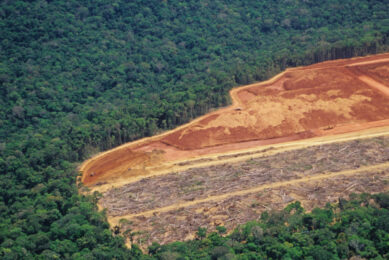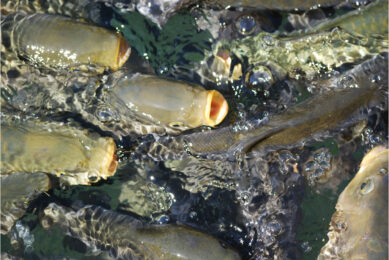Aquaculture leaders reunited by AquaVision
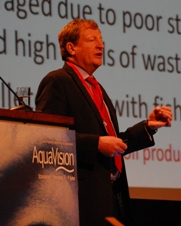
Andrew Jackson, Philip Smith and Albert Tacon, consecutive speakers at the AquaVision conference on Tuesday were all studying and researching in aquaculture together at university in the UK some 30 years ago. Their careers took them on separate paths and today was the first time all three were speakers at the same conference.
All three, Smith, Jackson and Tacon, are now important leaders in the fish feed and fish farming industry, where they are equally focused on sustainability.
Accepted by consumers
Dr Andrew Jackson is Technical Director of IFFO, the global trade organisation for fishmeal and fish oil producers.
He presented the new IFFO standard for the responsible supply of fishmeal. The only standard relating to fishmeal producers, it covers fish and factory as the auditable unit.
The first plant is already certified and another 70 are coming this June, adding up to an estimated 25% of world production of fishmeal and fish oil.
“This standard is an important contribution that will secure the role of marine raw materials as a sustainable part of fish feed in a way that is accepted by consumers and NGOs,” Jackson said.
Concern for the environment
After 35 years in the aquaculture industry, Dr Philip Smith is now heading the newly established Aquaculture Stewardship Council (ASC).
In his presentation he underlined the increasing consumer demand towards sustainability as an opportunity for aquaculture rather than an obstacle.
“The ASC is a very transparent and credible standard that is aimed at a consumer-facing eco-label for certified farms. When the labelling system is ready for use in 2011, it will certainly add value to the labelled fish,” Smith said, quoting top executives of Marks & Spencer, Wal-Mart and Carrefour among others. All three major retailers say they will prefer products with documented sustainability.
For the industry, Dr Smith pointed out the certification demands as leading to better farm practices, better fish health and better growth, all contributing to increased profit for fish farmers.
Alternative raw materials
There is a growing number of alternative materials to help spread sustainably available fishmeal and fish oil, said Dr Albert Tacon.
Marine raw materials will become far more strategic resources for fish feed. These will come mainly from agriculture and that should include the by-products of animal processing. They are used to make pet foods but in Europe cannot be used in fish feeds.
Other potential resources include micro-algae, seaweed, which is known as sea vegetables in some parts of the world, and waste products from other food sectors.
Large feed companies should invest in R&D to expand their raw material resources to a wider number of sources than today.




